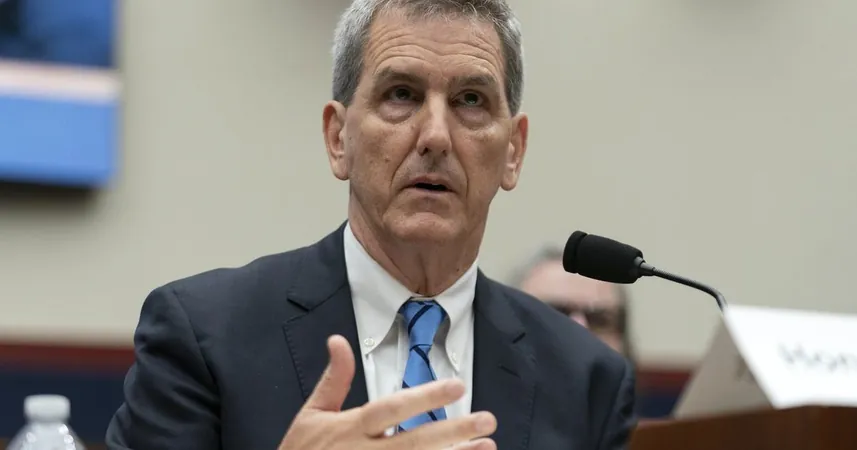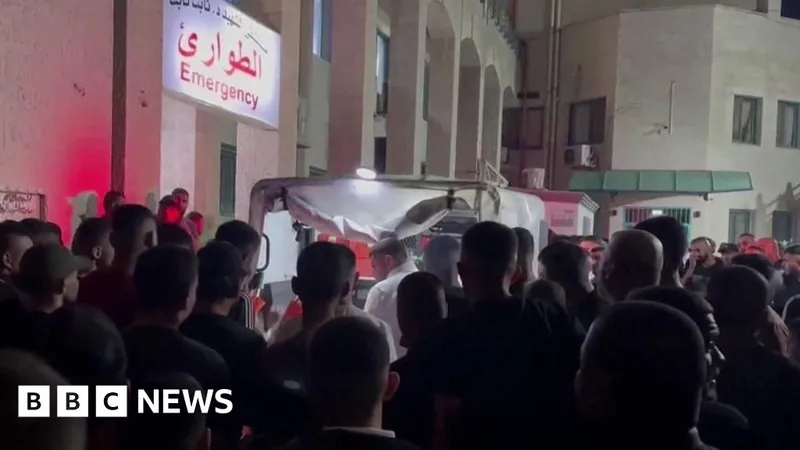
FAA Chief: Boeing's Safety Culture Overhaul is a Long Game
2024-09-24
FAA Chief: Boeing's Safety Culture Overhaul is a Long Game
In a significant address to lawmakers on Tuesday, Federal Aviation Administration (FAA) Administrator Mike Whitaker stressed that Boeing is embarking on a years-long journey to transform its safety culture. His remarks come in the wake of the aerospace giant's recent quality control issues and incidents, particularly highlighted by a serious door-plug blowout during a January 5th Alaska Airlines flight.
Earlier this year, the FAA required Boeing to submit a comprehensive action plan aimed at rectifying these safety concerns. However, Whitaker clarified that this plan will not lessen the FAA's intensified scrutiny of Boeing and its suppliers. He stated, “There must be a shift in the company’s safety culture to holistically address its systemic quality assurance and production issues.” His primary concern is to ensure that Boeing is equipped to implement the necessary changes for sustained improvement.
Boeing has recently faced various challenges, including a strike by 33,000 Machinists that started on September 13, after they overwhelmingly rejected a tentative contract. In response, Boeing has significantly increased its contract offer in hopes of bringing the workers back. The company is also under investigation related to the Alaska Airlines mishap, compounded by potential legal repercussions and ongoing criminal probes.
Despite these pressing issues, Whitaker acknowledged that Boeing has initiated certain short-term improvements. These include enhanced employee training, improved reporting systems that encourage workers to voice safety concerns, and increased oversight of suppliers. However, he emphasized that while some progress has been made, a true cultural shift will take years to fully embed. “It's going to take years of delivering that safety message and employees actually seeing that safety is more important than production before that culture can change,” Whitaker asserted.
Moreover, the FAA is ramping up its oversight capabilities. Whitaker revealed that the agency is on track to add 55 inspectors to Boeing and Spirit AeroSystems facilities by the end of this year, with 40 to 50 already onboarded, each possessing an average of 20 years of industry experience. Boeing, alongside its supplier Spirit, has opened its facilities for inspection following the Alaska Airlines incident, indicating a commitment to transparency and accountability.
In another noteworthy development, lawmakers queried Whitaker about the delayed decision from the Department of Transportation (DOT) regarding which airlines will secure coveted flight slots at Washington D.C.'s Ronald Reagan National Airport. Notably, Delta Airlines is vying for a nonstop flight between Seattle and the D.C. airport, a prime route for air travel.
As Whitaker prepares to testify before the Senate Homeland Security Investigations Subcommittee, all eyes will be on the FAA’s next steps in holding Boeing accountable while safeguarding the skies. The transformation of Boeing's safety culture could reshape the future of aviation safety in ways we are only beginning to understand. Stay tuned as this story develops – the implications could be monumental!


 Brasil (PT)
Brasil (PT)
 Canada (EN)
Canada (EN)
 Chile (ES)
Chile (ES)
 España (ES)
España (ES)
 France (FR)
France (FR)
 Hong Kong (EN)
Hong Kong (EN)
 Italia (IT)
Italia (IT)
 日本 (JA)
日本 (JA)
 Magyarország (HU)
Magyarország (HU)
 Norge (NO)
Norge (NO)
 Polska (PL)
Polska (PL)
 Schweiz (DE)
Schweiz (DE)
 Singapore (EN)
Singapore (EN)
 Sverige (SV)
Sverige (SV)
 Suomi (FI)
Suomi (FI)
 Türkiye (TR)
Türkiye (TR)